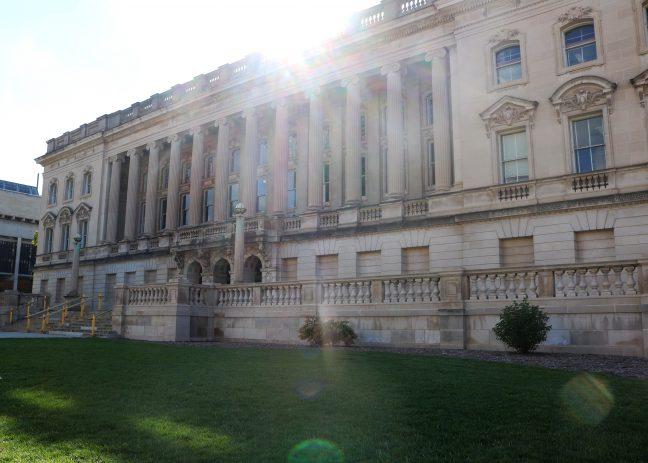Many people will say the social science degrees are a waste of time, including a student majoring in math who wrote a column on the matter last week.
“Many people” would be wrong.
This student urges today’s college students to forego “doing what [they] love” — presumably choosing a degree in one of the many social sciences fields — because those students “might feel helpless and become depressed.” She wrote students of the social sciences “learn interesting things,” but that will only lead to the apparently inevitable conclusion that “[one] can’t really do much of anything by [oneself]” in trying to make the world a better place.
This is peculiar, given the current U.S. Congress is overwhelmingly made up of lawyers and political scientists. And if any profession in this country has the power to enact social change, one would think “congressperson” would be it. A congressperson with a social sciences degree, that is, because that’s what a majority of them pursued. And sure, few people will become congresspeople in their lives, but in addition to the 535 members of Congress, there are thousands and thousands of state congressmen and women across the U.S— and thousands and thousands more staffers, aides, campaign workers and drafters.
Next, consider the thousands of federal judgeships that will need to be filled over the next decade – 12 percent of sitting federal district and circuit judges are 80 years or older! And then there are the thousands of state judgeships. As of 2005, only a quarter of practicing lawyers were under 40 — a trend that has probably been exacerbated by the aging of the baby boomers. Given the looming retirement of millions of lawyers, I would expect the need for pre-law majors — future lawyers — to be recognized.
Let’s turn to the teaching profession, which this student dishonestly collapses into the single vocation of “high school teacher.” Perhaps high school teachers do live “highly stressful [lives],” but what about the millions — that’s right, millions — of people working as professors, librarians, counselors, administrators, coaches, tutors and aides? I’ll concede that teaching high school is a stressful job — I would know, I’ve done it — but does that make it any less essential? In this student’s world, who will do the teaching?
How about counselors, therapists, and psychologists? How will a society bereft of psychological support services treat those suffering from mental illness? Who will be the next generation of urban planners, archaeologists, historians, investment analysts and translators? It seems this student does not believe that it’s possible to study within the social sciences, “contribute [one’s] unique ideas,” better society and pay the bills.
Yet that’s just what most Americans do — including all of us social scientists.
Jen Bizzotto (jbizzotto@wisc.edu) is a third year law student.


